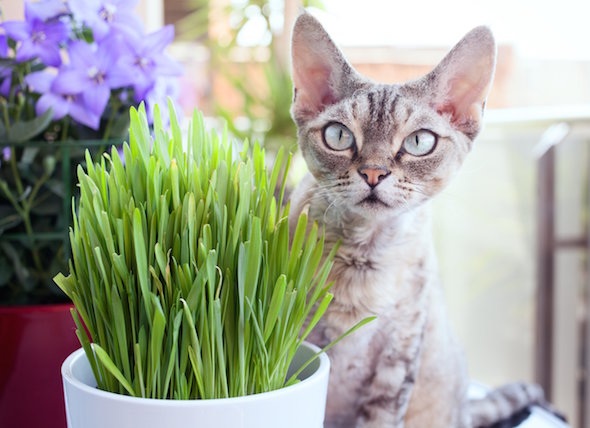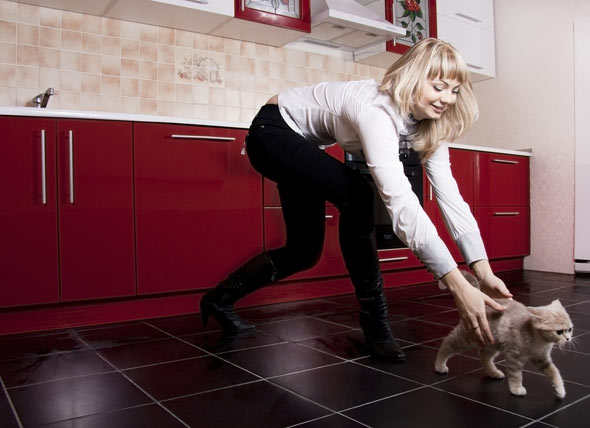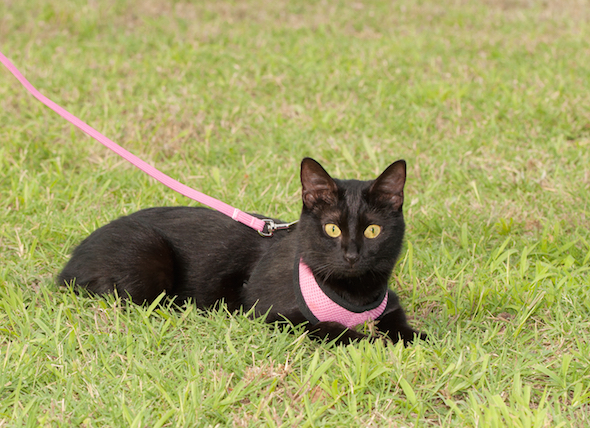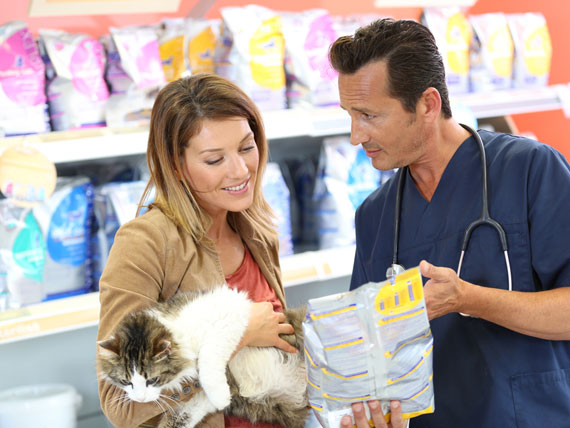The very first thing to do after you pick out your new kitten is to make your home a safe place for the kitten to live. To do that, you need to remove all things a kitten could get into that could be dangerous. The first rule of preparing a home : Kittens get into everything: closets, drawers, cabinets, potted plants, garbage cans, Christmas trees, toilet bowls, refrigerators, drapery, sofa cushions, garages, and much more. I know I'm making them sound like little Terminators, but it is true. Kittens get into places you have never given a second (or first) thought.
You must take precautions to remove all unsafe things from their reach. If you have children, this becomes more difficult. Pick up all toys under two inches in length. Also pick up paper clips, coins, rubber bands, ribbons, tape, yarn or string, and any other small object a kitten could try to swallow.
Basically, all the litter has to do is able to absorb moisture from the urine and stool and give the kitten something to scratch in. Additional properties that litter can feature include deodorizers, fresh scents, dust free formulas, and environmentally friendly litter.
You want to make sure the breeder is registered with a national cat registry and has been breeding cats for at least five years. They should be able to give you a certificate of pedigree with the kitten to prove it's a pure breed. Find out whether they offer a written guarantee for the kitten's health, and make sure they will give you a refund or exchange if the kitten develops a disease or genetic problem within the first year. Reputable breeders are more than happy to meet these conditions. If they are reluctant, or refuse, you do not want to do business with them - find another breeder.
Whatever type of litter you use, keep the litter box clean. That means that if you use a clay or paper litter, change the entire box daily. Use a disinfectant to wash the box out, then dry it, and refill it with about one to two inches of fresh litter. Do not let stool or soiled litter sit in the box-it can increase your kitten's likelihood of getting an infection. If you use the clumping litter, scoop out the soiled clumps daily, then change the litter and wash the box weekly.
If you have more than one cat in your household, you might need two litter boxes. Some cats are so fastidious that they will not use a box if another cat(especially a new kitten) has soiled it. Many of my clients have told me, "Once I got the new kitten, my other cat would not use the box and is going on the floor next to it!".

 How to Grow Cat Grass
By Stacia Friedman
Nibbling on g
How to Grow Cat Grass
By Stacia Friedman
Nibbling on g
 Training Your Fearful Cat
Signs and Symptoms of Fear and Anxiety in Your
Training Your Fearful Cat
Signs and Symptoms of Fear and Anxiety in Your
 Are You the Cause of Your Cat’s Stress?
Strange as it may sound, a stressed cat is no
Are You the Cause of Your Cat’s Stress?
Strange as it may sound, a stressed cat is no
 How to Take Your Cat for a Walk
By Vanessa Voltolina
How to Take Your Cat for a Walk
By Vanessa Voltolina
 6 Signs it’s Time to Change Your Cat’s Food
Choosing a cat food can be a painstaking proc
6 Signs it’s Time to Change Your Cat’s Food
Choosing a cat food can be a painstaking proc